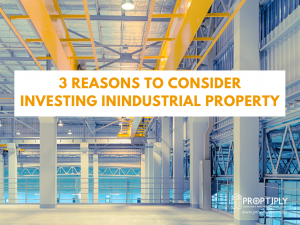
Is industrial property a worthy investment? Should you add an industrial property to your investment portfolio? Here are some reasons to consider investing in industrial property.
1. No ABSD
When it comes to property investing, many investors tend to consider residential properties first. However, investors who are purchasing their second or subsequent residential properties have to contend with the Additional Buyer’s Stamp Duty (ABSD). The ABSD is imposed as an additional levy on top of the existing Buyer’s Stamp Duty. It is used as a tool to discourage property speculation, prevent runaway property prices and to ensure that buyers can plan their finances wisely and buy what they can afford. The ABSD can significantly increase the costs of purchasing a residential property.
On the other hand, one of the plus points of investing in industrial properties is that they do not attract ABSD.
2. Potential higher rental yields and flat property tax
Historically, residential properties tend to command modest rental yields – typically 2% to 3% or just slightly more. Industrial properties, on the other hand, can potentially achieve higher rental yields of 5% or even more if landlords are savvy enough to secure the right units and tenants. Factors such as having the right tenants in stable industries, lower maintenance costs, attractive locations and optimising space usage can make a difference in improving asking rental prices and subsequently rental yields for industrial properties. The potential for higher returns make industrial property an attractive investment class.
In Singapore, a flat property tax of 10% of the annual value is levied on industrial buildings. On the other hand, the property tax for residential properties can range from 0% to 20%. The rate also varies, depending on the annual value and whether the unit is owner or non-owner occupied.
3. Diversification strategy
Property investors who are just starting out tend to turn to residential properties as they are most familiar with this asset class, being home owners themselves. However, residential landlords tend to bear a large portion of expenses incurred to rent out the property such as maintenance costs and property tax. On the other hand, industrial property landlords can afford to pass on these costs to their tenants.
Therefore, investors who already have a residential unit in their investment portfolio can consider buying into an industrial unit instead to diversify their portfolio and improve their cashflow.
Each investment always has its pros and cons and each investor has his or her own unique needs. Before you consider owning an industrial property for investment, it is wise to conduct a thorough audit of your financial health, assess your investment goals and understanding the market conditions so you can make an informed decision.